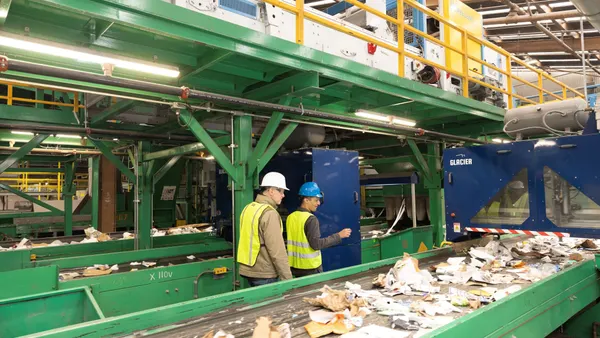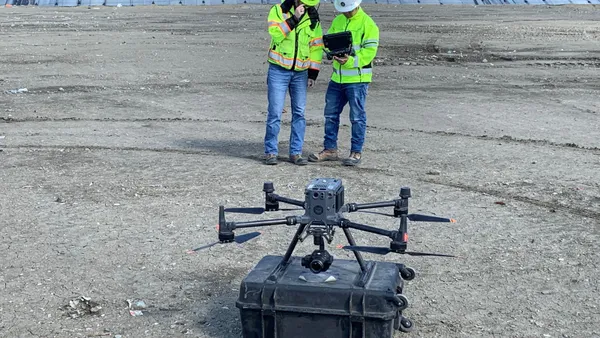Dive Brief:
- The Pennsylvania Department of Environmental Protection (DEP) has asked the Lancaster County Solid Waste Management Authority (LCSWMA) to conduct further research on whether its proposed 50-foot vertical expansion of the Frey Farm Landfill could withstand a 5.8 magnitude earthquake, as reported by Lancaster Online.
- The DEP's technical review identified 43 areas of concern to be addressed, focusing on the stability of underlying soil and bedrock. Another question is whether residual combustion ash could become wet and weaken earthen walls. The authority has also been asked to consider moving one earthen berm farther from public trails to limit visibility of the landfill.
- LCSWMA has said it will respond to all of these questions and is open to moving the berm. Approval of this technical review is the final step before receiving a permit, which the authority anticipates will happen this spring.
Dive Insight:
Without this proposed $56 million expansion, the landfill in Manor Township is currently expected to reach capacity by 2019. The community will be receiving millions of dollars in host fees and services, but a group of local residents have remained strongly opposed and could still pursue legal action. The site's proximity to the Susquehanna River is of particular concern so these final questions in the technical review are a welcome development for the residents.
A 2011 earthquake in Virginia, which reverberated up and down the East Coast, is being used as a benchmark of preparedness for future events. That earthquake has been cited as the cause of a 2013 slope failure at the Chrin Sanitary Brothers Landfill — also in Pennsylvania — which could take until 2018 to clean up and may hinder expansion plans at the site. On the West Coast, where earthquakes are more common, new waste facilities are being designed to resist future disasters.
The damage from disasters of all kinds is unpredictable by nature and can have serious consequences at waste-related sites. Last year, Hurricane Matthew caused coal ash from a Duke Energy facility in North Carolina to leak into a local river. After that same hurricane many local haulers played a key role in assisting with the cleanup, as they did after the summer floods in Louisiana and countless other incidents.










